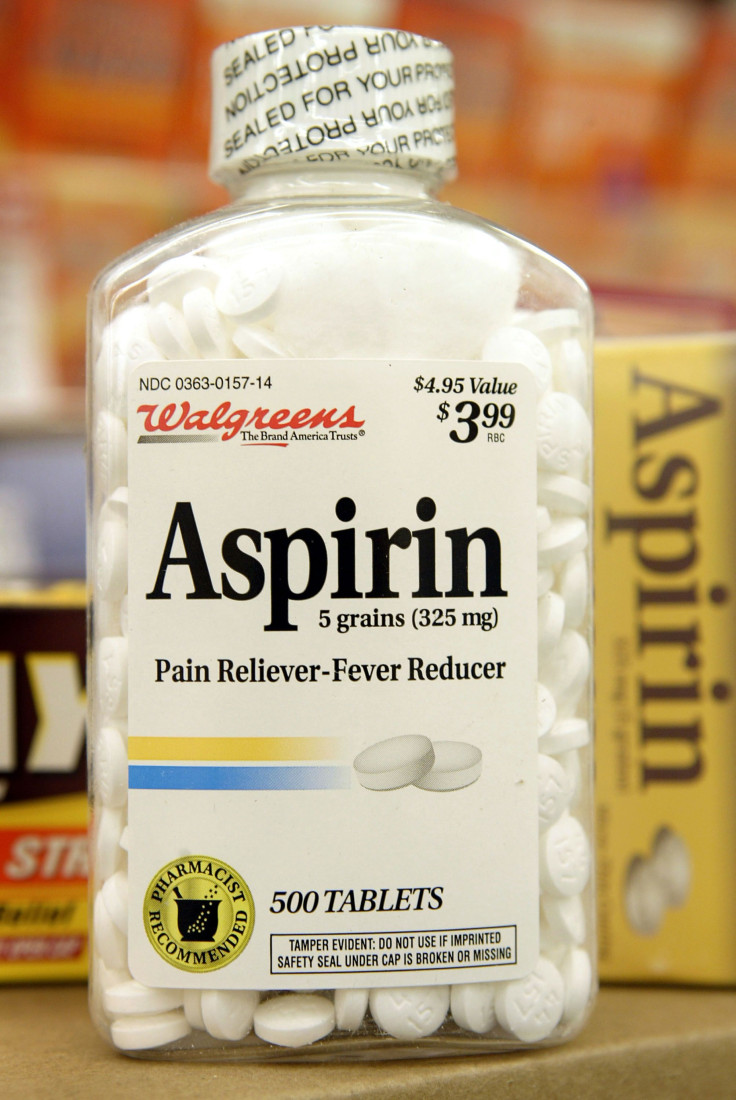Aspirin Prevents Cancer? New Medical Recommendations Say Yes, But Doctors Warn About Drug’s Harmful Side Effects

An expert panel has recommended that aspirin therapy be used to help prevent heart attacks and colorectal cancer, the New York Times reported Monday. It is the first time a major American medical organization has issued a broad recommendation to take aspirin in order to prevent a form of cancer.
The recommendation is in a draft report published Monday from the U.S. Preventive Services Task Force, an independent panel of experts in prevention appointed by the Department of Health and Human Services. The task force found in a series of evidence reviews it commissioned that taking low-dose aspirin can help prevent heart attacks, stroke and colorectal cancer for adults ages 50 to 69 who are at a high risk for heart disease, stating the benefits of aspirin outweighed the risks.
High-risk people in their 50s would benefit the most from taking a low dosage of aspirin, but the recommendation is weaker for high-risk people ages 60 to 69 because the risk of harmful bleeding increases as you get older. There were no recommendations for people under the age of 50 or older than 70, and the new guidelines warned patients to consult their doctor and assess their individual risk for bleeding complications.
The new aspirin recommendation was met with some criticism. Healthy people who take aspirin could suffer from some of the drug’s harmful side effects, including stomach bleeds and brain bleeds, some doctors said.
The task force "has gotten it wrong,” said Dr. Steven Nissen, the chairman of cardiology at the Cleveland Clinic, the New York Times reported. “And we can’t afford to get this wrong, because it affects tens of millions of Americans.”

Other doctors worried the new recommendations might prevent people from getting potentially life-saving screenings. “People still need to be screened,” said Dr. David Johnson, who serves on the U.S. Multi-Society Task Force on Colorectal Cancer, the New York Times reported. “I have major reservations that the message will be, ‘I take aspirin, so I don’t need to be screened.’ ”
Officials in organizations including the American Cancer Society and the American Heart Association, however, applauded the recommendation.
Cardiovascular disease and cancer are the leading causes of death for adults in the U.S., and colorectal cancer is the third most common cancer in the nation, resulting in roughly 50,000 deaths per year. Currently, around 40 percent of Americans over 50 use aspirin for primary or secondary prevention of cardiovascular disease, and that number is expected to increase once the recommendations are finalized.
© Copyright IBTimes 2024. All rights reserved.












